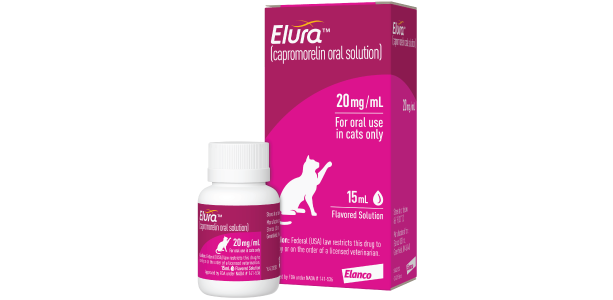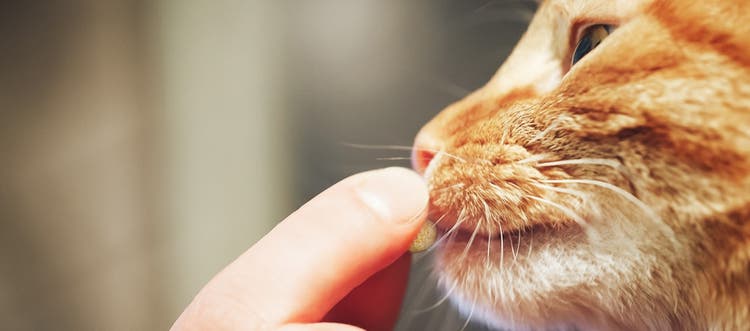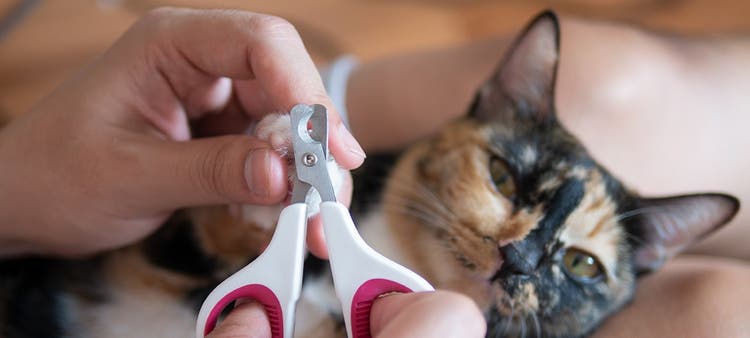8 steps for giving your cat liquid medicine
Giving liquid medicine to your cat or kitten can be a challenge. Luckily, there are a few simple steps you can take to make the process easier for both you and your cat.
Steps for Giving Your Cat Liquid Medicine
- Find a quiet, well-lit area where your cat can feel secure.
- Shake the medication bottle as directed before each use.
- Wrap your cat in a towel or fleece to help them feel more comfortable.
- Position your cat in the crook of your arm (facing away from you) to help keep them from backing away.
- Use one hand to gently, but firmly, hold your cat under the chin.
- With your other hand, gently insert the dropper or syringe into your cat’s mouth by their cheek.
- Squeeze the dropper or depress the plunger to administer the medicine directly into your cat’s mouth, aiming to deposit the liquid near the back of your cat’s tongue.
- Reward your cat with wet food or treats after dosing to help them form a positive association with the experience.
Other Tips for Giving Your Cat Liquid Medication
- Always check with your veterinarian to see if it’s safe to give your cat’s medicine with food.
- Have the proper amount of medication (as prescribed by your veterinarian) drawn up and ready. Most liquid medication comes with a syringe to help administer the correct amount.
- Ask your veterinarian if this approach is appropriate for the particular medicine prescribed.

Endurosyn® Digestive Health Probiotic Oral Gel for Cats
A three-day probiotic oral gel to promote intestinal well-being during sudden times of stress in cats.

Elura™ (capromorelin oral solution)
The only FDA-approved treatment specifically designed for the management of weight loss in cats with chronic kidney disease (CKD). Help your cat get back to “feline fabulous.” Talk to your vet about Elura.
Elura™(capromorelin oral solution)
Indications:
Elura is indicated for the management of weight loss in cats with chronic kidney disease.
Important Safety Information:
For oral use in cats only. Do not use in cats that have a hypersensitivity to capromorelin, or in cats with hypersomatotropism (acromegaly). Elura may increase serum glucose for several hours after dosing; use in cats with current or historical diabetes mellitus has not been evaluated and may not be appropriate. Use with caution in cats that may have cardiac disease, severe dehydration, or hepatic dysfunction. Elura has not been evaluated in cats younger than 5 months of age, or in breeding, pregnant or lactating cats. The most common adverse reactions included vomiting, hypersalivation, inappetence, behavior change and lethargy. Please see Elura product label for full Prescribing Information.


